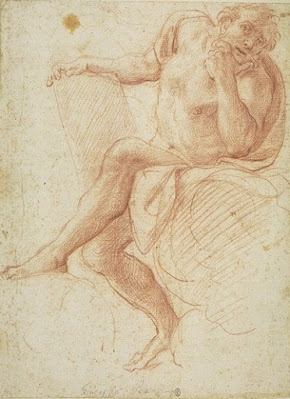 |
| Anonymous Italian Artist Académie ca. 1650-1700 drawing Musée du Louvre |
 |
| Anonymous Italian Artist Académie ca. 1650-1700 drawing Musée du Louvre |
 |
| Anonymous Italian Artist Académie ca. 1650-1700 drawing Musée du Louvre |
 |
| Anonymous Italian Artist Académie ca. 1650-1700 drawing Musée du Louvre |
 |
| Anonymous Italian Artist Académie ca. 1650-1700 drawing Musée du Louvre |
 |
| Anonymous Italian Artist Académie ca. 1650-1700 drawing Musée du Louvre |
 |
| Anonymous Italian Artist Académie ca. 1650-1700 drawing Musée du Louvre |
 |
| Anonymous Italian Artist Académie ca. 1650-1700 drawing Musée du Louvre |
 |
| Anonymous Italian Artist Académie ca. 1650-1700 drawing Musée du Louvre |
 |
| Anonymous Italian Artist Académie ca. 1650-1700 drawing Musée du Louvre |
 |
| Anonymous Italian Artist Académie ca. 1650-1700 drawing Musée du Louvre |
 |
| Anonymous Italian Artist Académie ca. 1650-1700 drawing Musée du Louvre |
 |
| Anonymous Italian Artist Académie ca. 1650-1700 drawing Musée du Louvre |
 |
| Anonymous Italian Artist Académie ca. 1650-1700 drawing Musée du Louvre |
 |
| Anonymous Italian Artist Académie ca. 1650-1700 drawing Musée du Louvre |
Figures in a Legendary Glade
When the picnic-basket lovers who had been dangling
Grapes between every kiss (thus interfusing
Leavings with their loving) left the bruised glade,
Then for three hours each weed and tendril sprang
With a tingling back to its proper bend in the sun,
Small reconciliations not to be counted.
Or not perhaps to be counted dear, being
So plural and of such a delicate vim.
Where the grapes' wet skeleton fell, swift points of light
Clustered like maggots or the remembrance of green fruit
Darklier ribbed now where no sun may ripen.
It became at last possible to watch the entire clearing.
The thick light ruminant, lit branches gently
Heaving, muscles of a beast asleep, watch it
Assimilate the lovers, what they meant
With their refreshments and their temporal soundings,
Till the flesh of the beast is burning history
Of what they endured in the glade, persisting there.
For they went, mouths plundered by the dark beast
Who with his gold twin broods on happenings:
The black beast sluggish from a thousand graces
Swallowed each day, crisper of grasses, whose
Mere odor salts the sensitive tongue with autumn.
– Greedy themselves, they had deserved no less.
Yet where they lay, light in a Maltese cross
Through branches halts them amberly from this,
Like the good gold beast for whom even now at dusk
The villagers leave meat by the black woods' edge;
Then hurry back, already too long afield,
To friends and firelit rooms and the late retelling
Of how, from the time when the world was a tall young tree,
He comes to graze, transmutes with a father's pride
The frail or bitten and, by the least of his cares,
Reddens the ashen trunk where fungus clings
Like the incidence of pleasure to his children
Committed to doom, denial, airier things.
– James Merrill (1949)